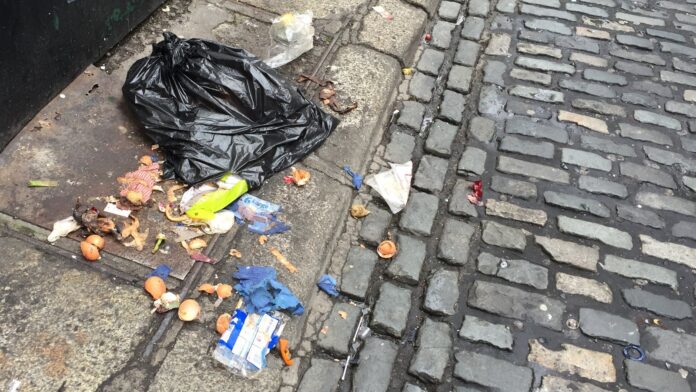
LIMERICK City Centre has cleaned up its act somewhat to be deemed ‘moderately littered’ in the first national litter survey of 2024 by business group Irish Business Against Litter (IBAL).
And there was more good news, as the study of 40 towns and cities, showed Limerick South (Galvone), rise to 29th spot in the table – a best ever result for the area.
The study reveals an overall improvement in litter levels, and a decrease in cans and plastic bottles on the streets on foot of the new Deposit Return Scheme.
The An Taisce report for Limerick City Centre said “an increase in sites getting the top litter grade helped lift Limerick City’s ranking since last year”.
“It is great to see some improvements at previously littered sites e.g. Entrance to Cruises Street Car Park and Mount Kenneth and Henry St Car Park Environment.”
An Taisce also commended Limerick City and County Council for its anti-litter action.
“Well done to the local authority for taking action on some sites which have suffered long term abuse and neglect. A couple of the sites surveyed had county council signage asking them to cease holding and storing all litter on site – 21 Mallow St / and a site at corner of Hyde Road and Colbert Bus Station.”
The report noted that “a much improved site was Laneway to High Road, from Thomandgate, where the previous dumping and littering problems have been addressed”.
“A vacant building on Cecil Street featured heavy dumping. This was the sole litter blackspot in the city, but a number of heavily littered sites on Mallow Street also brought down the city’s overall grade.”
The An Taisce report for Limerick South (Galvone) pointed out that with six top ranking sites, Galvone is certainly inching its way up the IBAL league and has come a long way from when it was first included.
“All the approach roads presented well and the large residential area of O’Malley Park / Churchfield was very much deserving of the top litter grade. An improvement was noted at the Weigh Station – Childers Road, though it was still somewhat littered and clearly it needs careful monitoring to prevent deterioration to previous status.”


